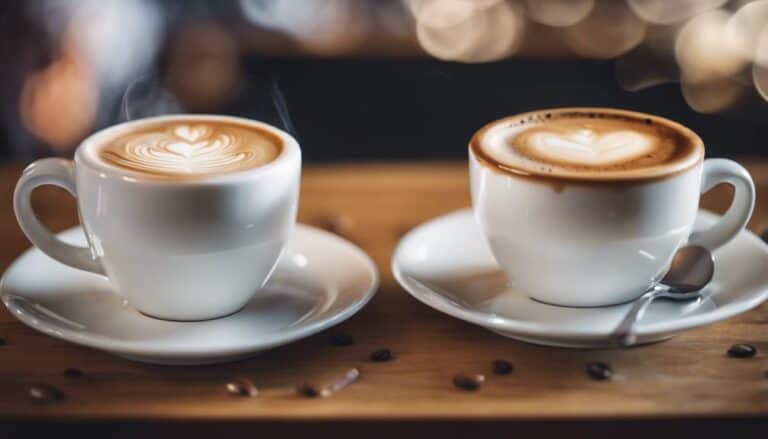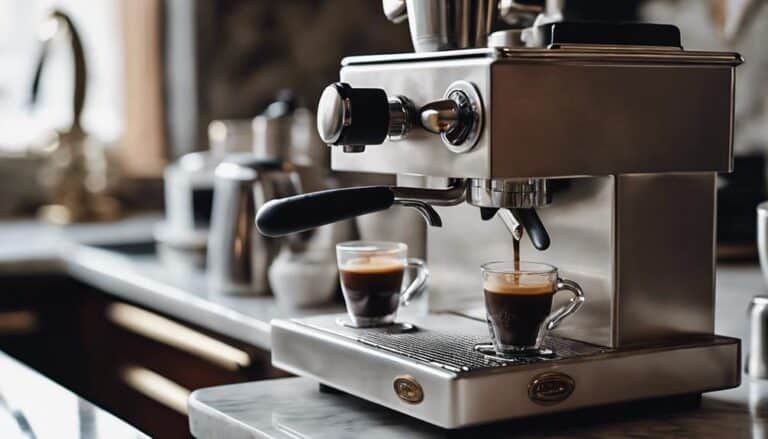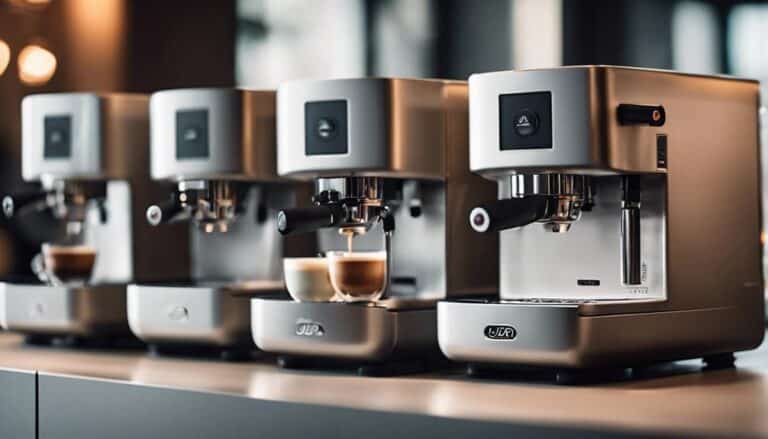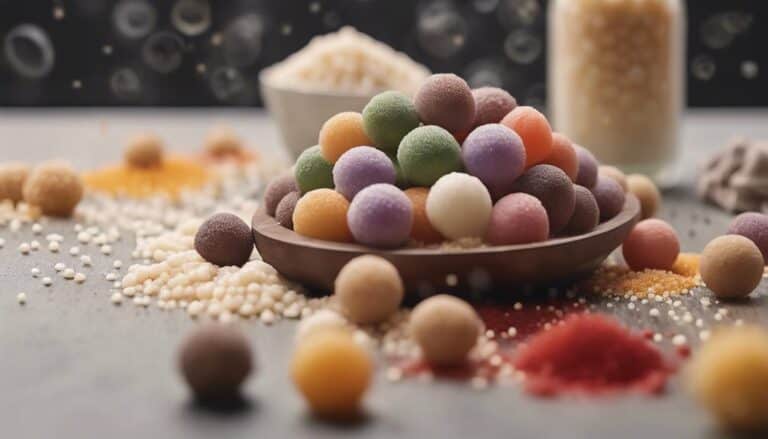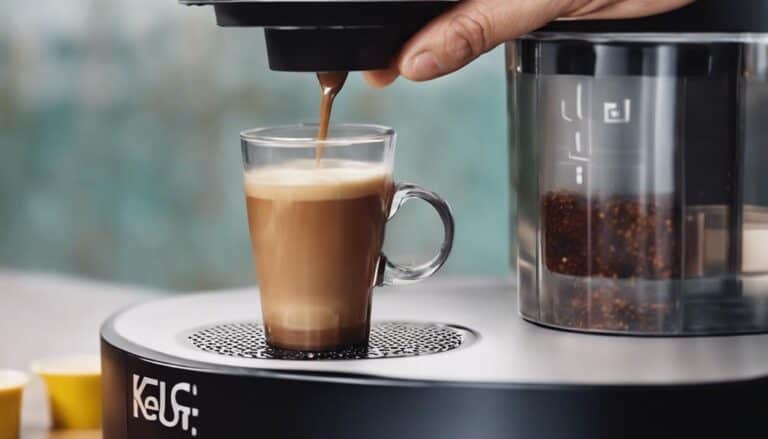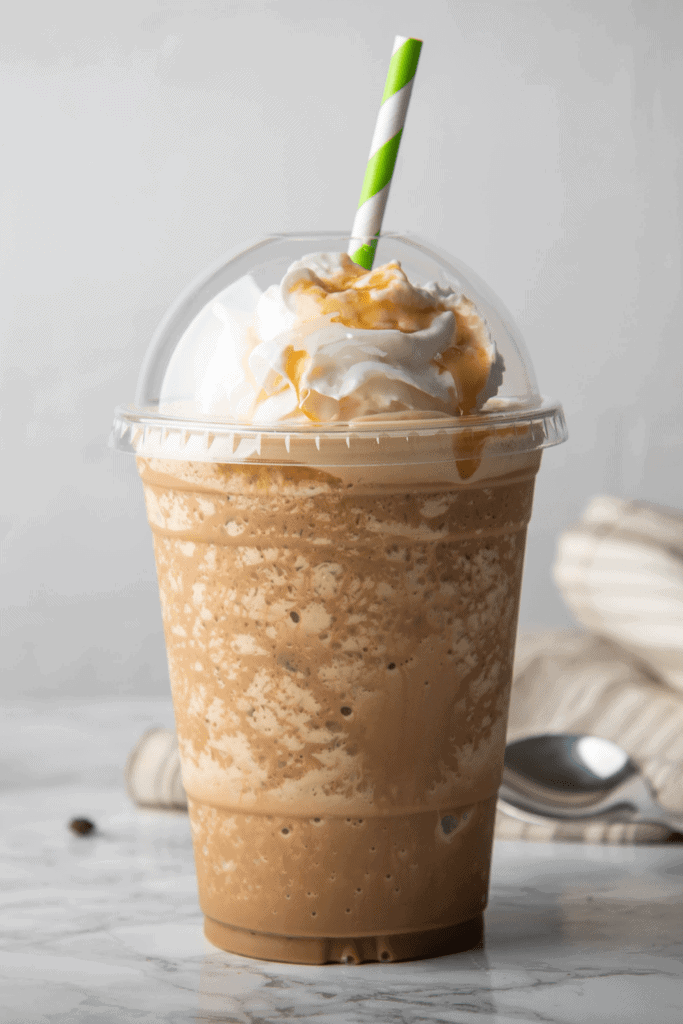French Press Vs Filter Coffee: the Brewing Battle
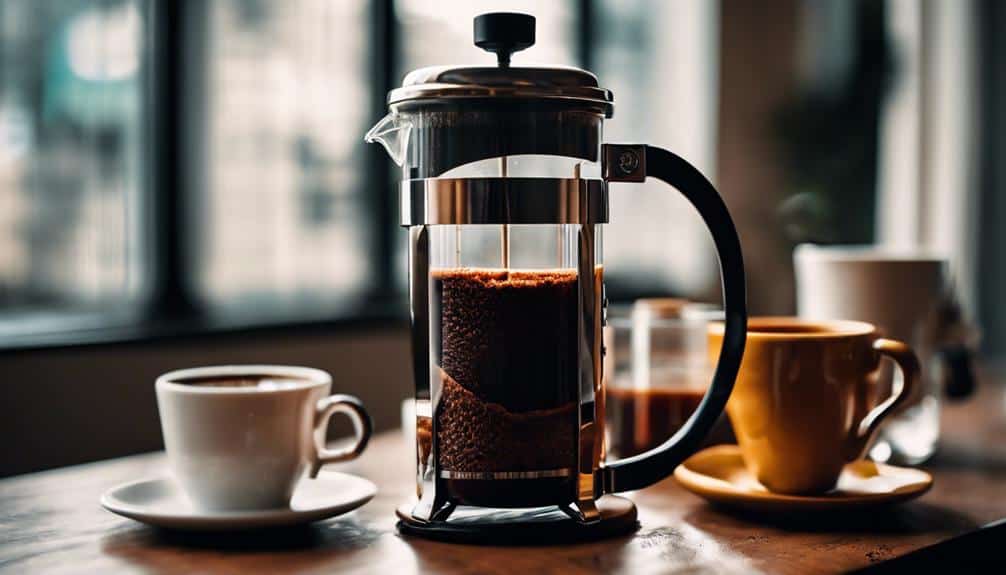
When it comes to French press versus filter coffee, the debate is as nuanced as the brew itself. While both methods have their loyal followers, the question remains: which one truly reigns supreme in the world of coffee brewing? As I weigh the pros and cons of each, exploring factors such as flavor extraction, brewing time, and overall experience, a clear winner is yet to emerge. Join me as we uncover the intricacies of these brewing techniques and unravel the mysteries behind what makes a perfect cup of coffee.
Brewing Basics: French Press Vs Filter
When comparing the brewing basics of French press vs. filter coffee, the key differences lie in the grind size and extraction method used for each brewing technique. French press typically uses a coarse grind, allowing for a slow extraction process that results in a robust and full-bodied cup of coffee. On the other hand, filter coffee requires a medium grind for its drip brewing method, producing a smoother and cleaner taste profile.
The contrast in grind size between these brewing methods greatly impacts the final brew. The coarse grind of French press allows for a more intense extraction as the grounds steep in hot water, providing a textured mouthfeel and bold flavors. In comparison, the medium grind used in filter coffee ensures a quicker extraction as water flows through the grounds in a filter, resulting in a milder and more consistent taste.
Understanding how grind size influences the extraction process is essential for coffee enthusiasts looking to tailor their brewing experience to their taste preferences. Whether you prefer the robust richness of French press or the smooth clarity of filter coffee, mastering grind size is key to revealing the full potential of your favorite brewing method.
Flavor Profiles: Robust Vs Smooth
French press coffee boldly showcases robust flavors that linger on the palate, offering a full-bodied experience with deep, intense notes.
In contrast, filter coffee presents a smoother profile, emphasizing delicate nuances and a cleaner taste that highlights the coffee's subtleties.
The decision between the two hinges on whether one prefers the boldness and intensity of a French press brew or the mellowness and delicacy of filter coffee.
Boldness Vs. Mellowness
For those who seek a bolder, more intense coffee experience, the French Press stands out as a champion in delivering robust flavor profiles. French Press coffee, with its full immersion brewing method and coarse grounds, extracts boldness that awakens the taste buds.
Here are three key reasons why the boldness of the flavor in French Press coffee surpasses that of filter coffee:
- Full Immersion Brewing: French Press coffee allows the coffee grounds to steep in hot water, extracting every bit of flavor and aroma for a robust cup.
- Coffee Oils Unlocked: The French Press method brings out the rich oils present in coffee beans, intensifying the flavor and creating a full-bodied experience.
- Coarse Grinds: The use of coarse grounds in French Press brewing guarantees a strong and bold taste that lingers with each sip.
Intensity Vs. Delicacy
In the domain of coffee brewing methods, the distinction between intensity and delicacy manifests prominently in the contrasting flavor profiles of robustness and smoothness. French Press coffee, known for its robust and intense flavor profile, offers a full-bodied taste due to the immersion brewing method. On the other hand, Filter coffee provides a smoother and more delicate taste profile through drip brewing, accentuating subtle flavor notes. Below is a comparison table to highlight the differences:
| Aspect | French Press | Filter Coffee |
|---|---|---|
| Flavor | Robust and intense | Smooth and delicate |
| Brewing | Immersion method extracts oils | Drip method with paper/mesh filters |
| Taste | Full-bodied and rich | Clean cup with distinct flavors |
| Preference | Boldness and richness | Clarity and complexity |
The choice between French Press and filter coffee ultimately depends on personal preferences for boldness and richness versus clarity and smoothness in coffee flavor.
Brewing Techniques Compared: Immersion Vs Drip
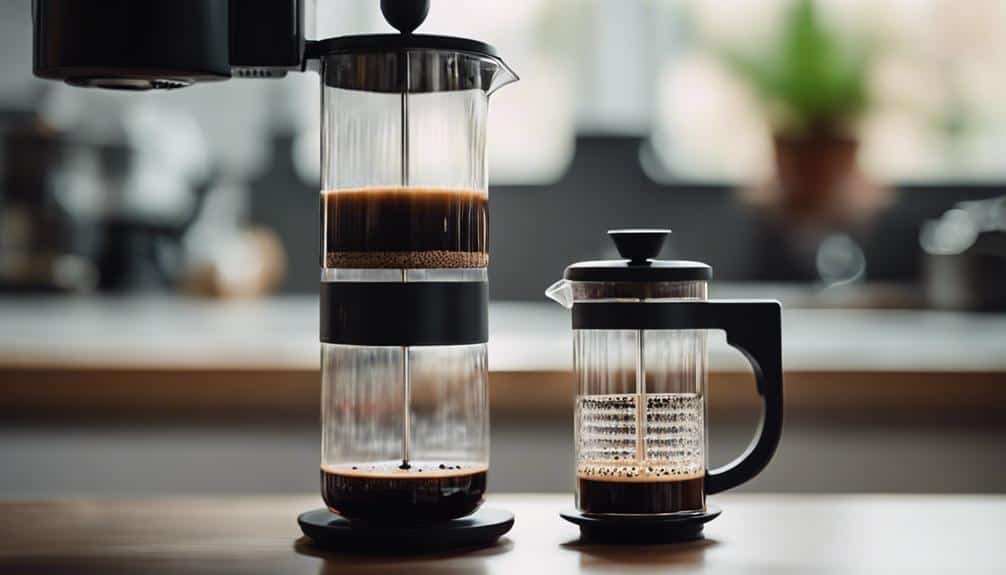
Comparing immersion and drip brewing techniques reveals distinct methods for extracting flavors from coffee grounds.
- Immersion Brewing (French Press):
Immersion brewing, as seen in the French press, involves steeping coarse coffee grounds in hot water, allowing full extraction of flavors and oils. This method produces a rich, full-bodied coffee with a textured mouthfeel, appealing to those who enjoy a more robust and intense coffee experience.
- Drip Brewing (Filter Coffee):
Drip brewing, typical in filter coffee machines, utilizes gravity to pass hot water through a bed of ground coffee. The paper filter in this method captures oils, resulting in a clean taste that showcases the coffee's complexity and nuances. Filter coffee lovers appreciate the clarity and subtleties of flavors achieved through this process.
- Decision Factors:
Choosing between French press and filter coffee depends on personal taste preferences. Those who prefer bold, heavy-bodied coffees may lean towards the French press, while individuals seeking a cleaner, more nuanced flavor profile might opt for filter coffee. Lifestyle considerations, such as brewing time and ease of cleaning, also play a role in selecting the brewing technique that best fits one's needs.
Grind Size and Extraction: Impact on Taste
In the world of coffee brewing, the grind size is a critical element that shapes the final taste of your cup.
A coarse grind in a French press yields a bold and robust profile, while a finer grind in filter coffee accentuates nuanced flavors.
Grind Size Importance
Grind size greatly influences the taste of coffee, playing an essential role in the extraction process and flavor profile of the brew.
The grind size determines the surface area of coffee grounds exposed to water, affecting the extraction rate and overall strength of the coffee.
Coarser grinds, like those used in French Press, lead to a slower extraction process, resulting in a rich, full-bodied flavor.
Finer grinds, typical in filter coffee, allow for a quicker extraction, producing a cleaner and more nuanced cup.
Understanding the significance of grind size is crucial for achieving the desired taste in your coffee, whether you prefer the robustness of French Press or the clarity of filter coffee.
Taste Impact Analysis
The impact of grind size and extraction techniques on taste is pivotal in distinguishing the flavor profiles of French press and drip coffee.
The grind size directly influences the extraction rate, with finer grinds yielding a more intense flavor in a shorter time. In French press, a coarse grind results in a fuller-bodied, less acidic brew, enhancing its bold characteristics.
Conversely, drip coffee, with a medium grind, offers a balanced taste due to its controlled brewing process. The longer steep time in French press allows for a richer flavor profile, while drip coffee's filter method guarantees a cleaner cup consistently.
Understanding the nuances of grind size and extraction techniques is essential in appreciating the distinct taste experiences that French press and drip coffee have to offer.
Brewing Time: Quick Vs Steep
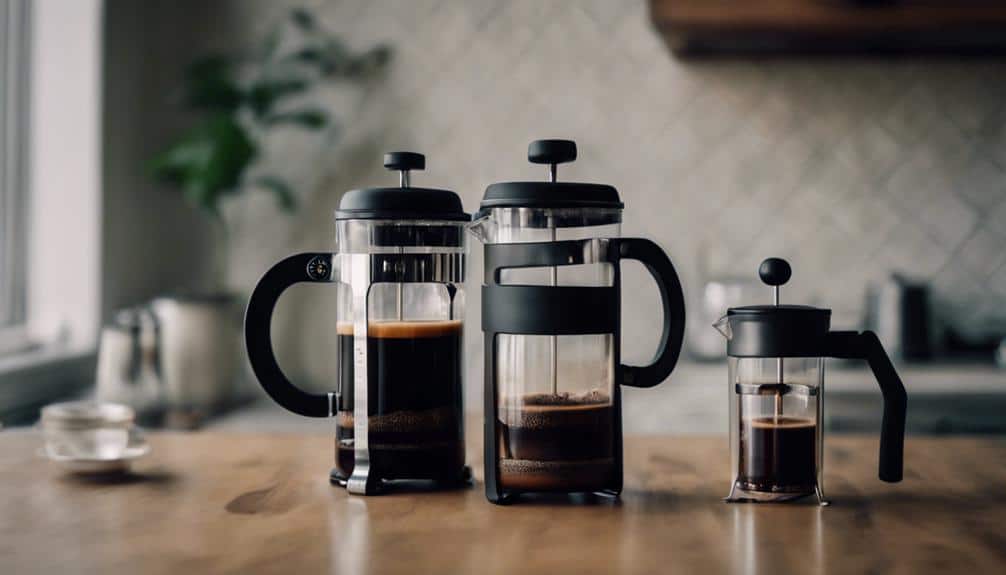
Steeped in the essence of time, the brewing durations of French press and filter coffee reveal contrasting approaches to crafting the perfect cup. Here's a breakdown of the brewing time differences between these two popular brewing methods:
- French Press: Known for its slow and immersive brewing process, the French press typically requires 4 to 5 minutes for extraction. This method involves steeping coffee grounds in hot water and then pressing them down with a plunger to separate the grounds from the brewed coffee.
- Filter Coffee: On the other hand, filter coffee, commonly made using drip brewing methods, offers a quicker brewing time compared to the French press. Drip coffee machines can efficiently brew a full pot in about 5 to 10 minutes, making it ideal for those rushed mornings when time is of the essence.
- Impact on Flavor: The distinct brewing times of French press and filter coffee play an important role in shaping the final flavor and texture of the brewed coffee. The slow extraction of a French press often results in a fuller-bodied and more robust brew, while the faster drip brewing process yields a cleaner and lighter cup. Ultimately, the choice between quick and steep brewing times comes down to personal preference and the desired coffee experience.
Cleanup and Maintenance: Ease of Use
In considering the cleanup and maintenance aspect between French Press and filter coffee machines, the ease of use becomes a defining factor in choosing the preferred brewing method.
French Press requires more manual effort for cleaning due to the mesh filter and grounds removal process, which can be a bit messy. Regular maintenance includes disassembling the plunger for thorough cleaning, adding to the time and effort needed.
On the other hand, filter coffee machines are easier to clean with disposable paper filters that trap coffee grounds, making cleanup a breeze. Additionally, drip coffee makers may require occasional descaling to remove mineral deposits for best performance.
The simplicity of filter coffee machines makes them more convenient for daily use and cleaning routines. With fewer components to clean and maintain, filter coffee machines offer a hassle-free experience, perfect for those who value efficiency and ease of use in their brewing routine.
Environmental Impact: Sustainability Factors
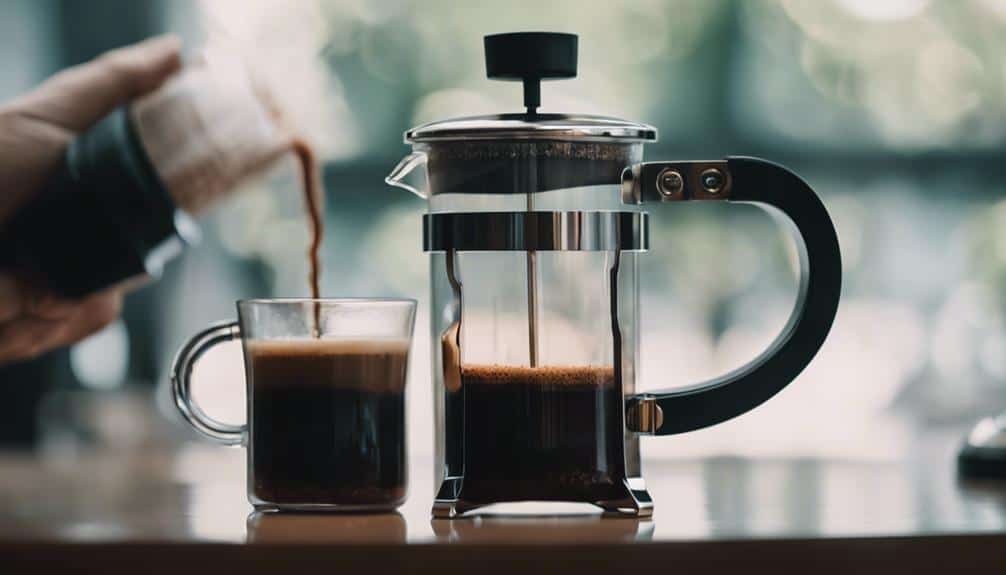
When it comes to sustainability factors in coffee brewing, material choices and energy consumption play important roles.
Opting for eco-friendly materials like stainless steel or glass can reduce the environmental impact of coffee equipment.
Additionally, being mindful of energy consumption in the brewing process can greatly contribute to a more sustainable coffee-making routine.
Material Choices
Opting for stainless steel or glass materials in coffee brewing presents a sustainable choice that reduces environmental impact, particularly in the context of French press versus filter coffee methods. When considering the sustainability aspect of material choices in coffee brewing:
- Stainless steel French press components are durable and recyclable, making them an eco-friendly option.
- Glass French press carafes not only offer durability but also recyclability, contributing to sustainable practices.
- Choosing reusable stainless steel filters for filter coffee reduces waste and promotes environmentally conscious brewing habits.
Energy Consumption
Given the substantial impact of energy consumption on the environment, it's vital to assess the sustainability factors involved in the energy usage of various coffee brewing methods.
The energy usage of coffee machines varies greatly, with full-size drip machines consuming 100-150kWh per year, single-serve pod machines using 45-65kWh, and electric stoves for compact coffee makers consuming 185kWh annually. The environmental impact of coffee machine usage outweighs the manufacturing impact, highlighting the need to take into account energy consumption when brewing coffee.
Opting for energy-efficient appliances and supporting sustainable coffee options can help reduce the environmental footprint of your coffee consumption habits. It's important to be mindful of the energy usage of your coffee brewing method to make more eco-conscious choices.
Customization Options: Personalized Brewing Experience
For a truly personalized brewing experience, both French press and filter coffee offer a range of customization options that allow coffee enthusiasts to tailor their cup to perfection. When it comes to creating the ideal brew, here are three key ways in which these brewing methods provide flexibility and freedom:
- Control Over Brewing Variables: French press empowers users to adjust important factors like water temperature and steeping time, enabling precise control over the brewing process.
- Filter Selection: Filter coffee enthusiasts can experiment with different filter types such as paper or metal, influencing the flavor profile and clarity of the final cup.
- Adjustable Strength and Extraction: With French press, individuals can fine-tune the coffee-to-water ratio to achieve their preferred strength, while filter coffee allows for customization through varying grind sizes to control extraction levels.
The ability to customize brewing parameters according to personal taste preferences is a hallmark of both French press and filter coffee, offering coffee aficionados the freedom to craft a cup of coffee that suits their exact preferences.
Cost Comparison: Budget-Friendly Brews
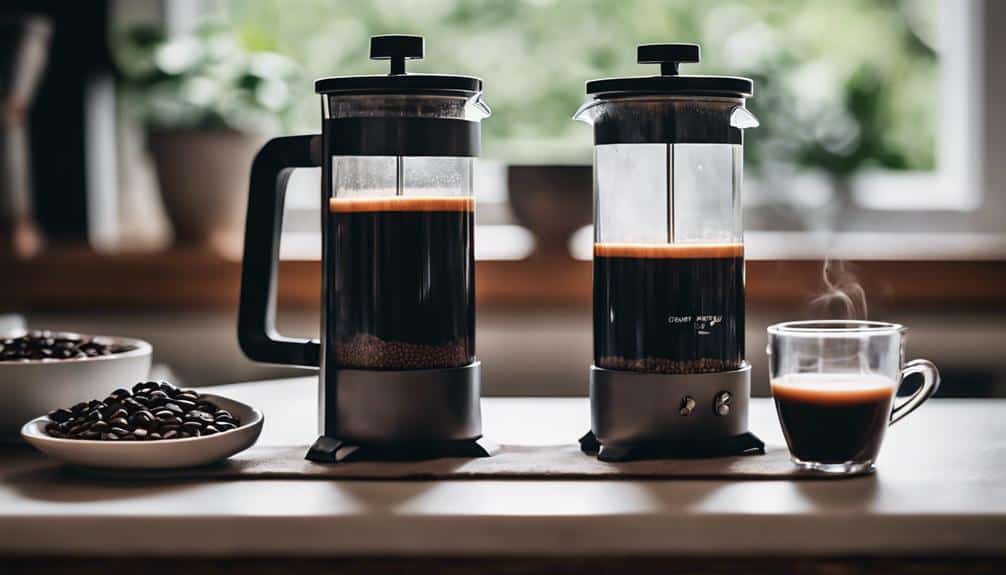
French press coffee makers typically offer a more budget-friendly brewing option compared to high-end drip coffee machines, making them a cost-effective choice for coffee enthusiasts.
With French press brewing, the initial cost is often lower than that of premium drip machines. Additionally, ongoing expenses are minimal since French press uses a metal filter instead of disposable paper filters like in drip coffee, which can accumulate costs over time.
The simplicity of the French press method also means there are fewer additional costs for accessories or maintenance, contributing to its budget-friendly appeal. In contrast, drip coffee machines may require more frequent maintenance due to components like heating elements and pumps, leading to higher long-term costs.
When evaluating cost-effectiveness, the French press stands out for its affordability, requiring fewer replacement parts or specialized accessories compared to filter coffee options. For those seeking a wallet-friendly brewing solution without compromising on quality, the French press emerges as a clear winner in the budget-friendly brews category.
Verdict: Choosing Your Brewing Champion
In the world of brewing methods, the choice between French Press and Filter Coffee ultimately comes down to personal preferences and lifestyle considerations. Both methods offer distinct advantages, making it a tough decision for coffee enthusiasts. Here are three key factors to ponder when choosing your brewing champion:
- Flavor Profile: French Press delivers a robust and full-bodied coffee with a rich mouthfeel, perfect for those who enjoy a more textured and intense brew. On the other hand, Filter Coffee provides a consistent and milder taste, suitable for those who prefer a smoother drinking experience.
- Brewing Experience: If you value a ritualistic and hands-on approach to brewing your coffee, the French Press offers a unique experience with its manual press and enhanced aroma. However, for individuals with busy mornings or large households, the convenience and speed of making Filter Coffee through drip methods may be more appealing.
- Lifestyle Fit: Take into account your daily routine and lifestyle demands. French Press may be ideal for leisurely weekends or intimate gatherings where the brewing process is part of the enjoyment. In contrast, Filter Coffee's ease of use and ability to cater to multiple servings make it a practical choice for hectic mornings or social events.
Ultimately, whether you lean towards the boldness of French Press or the convenience of Filter Coffee, the decision rests on what resonates with your personal coffee preferences and daily life dynamics.
Conclusion
To sum up, the battle between French press and filter coffee ultimately comes down to personal preference. If you crave a bold and intense flavor experience, the French press is your champion.
However, if you prefer a smooth and clean taste profile, filter coffee is the way to go. Both brewing methods have their own unique advantages, so choose wisely based on your taste preferences and brewing style.
Happy brewing!
